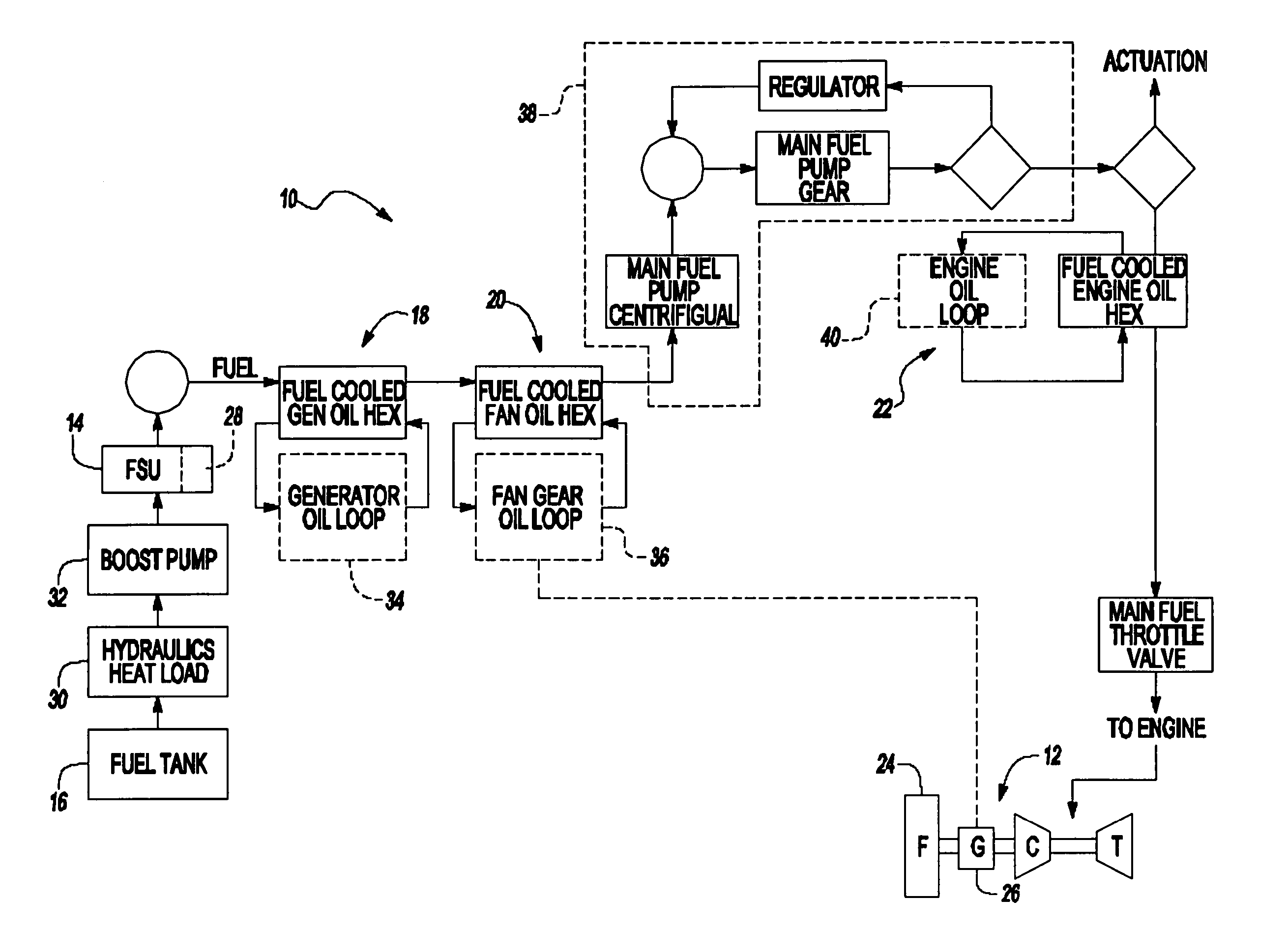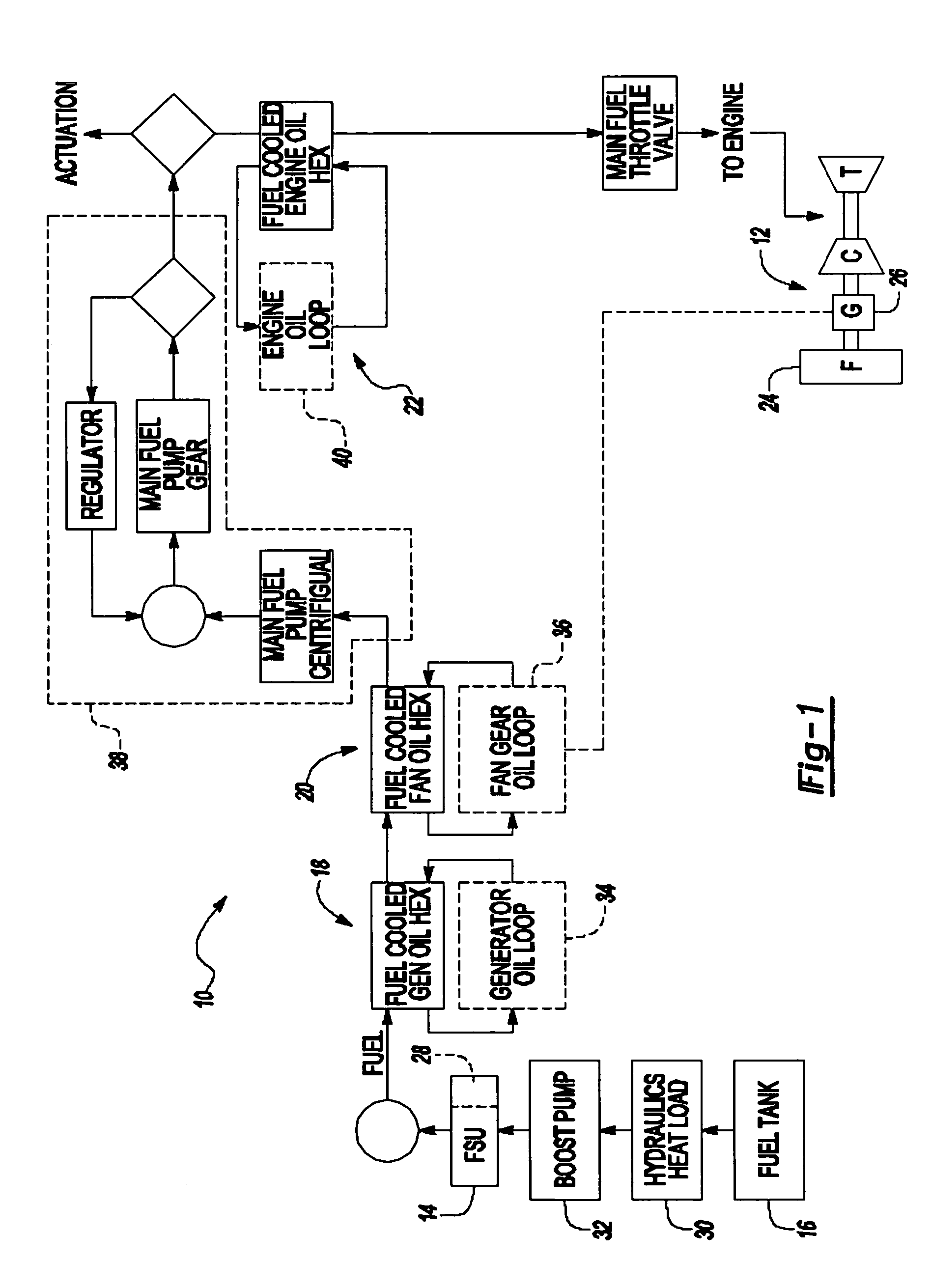Thermal management system for an aircraft
a technology of thermal management system and aircraft, applied in the direction of rocket engine plants, efficient propulsion technologies, machines/engines, etc., can solve the problems of system weight and aerodynamic drag, limited maximum operating temperature of aviation fuel, and progressive degradation of engine performance, etc., to achieve the effect of reducing the weight of air-to-liquid heat exchangers
- Summary
- Abstract
- Description
- Claims
- Application Information
AI Technical Summary
Benefits of technology
Problems solved by technology
Method used
Image
Examples
Embodiment Construction
[0014]FIG. 1 illustrates a general perspective view of a fuel based thermal management system (TMS) 10 for an energy conversion device (ECD) 12. A fuel stabilization system (FSU) 14 receives a liquid fuel from a reservoir 16.
[0015]Typically, the fuel serves as a coolant for one or more (three shown) liquid-to-liquid heat exchanger sub-systems 18, 20, and 22. The fuel becomes progressively heated along the fuel flow path as the fuel draws thermal energy from components arranged along the fuel flow path. The heated fuel is then delivered to the fuel injectors for combustion within the ECD 12.
[0016]The ECD 12 may exist in a variety of forms in which the fuel, at some point prior to eventual use for processing, for combustion or for some form of energy release, acquires sufficient heat to support autoxidation reactions and coking if dissolved oxygen is present to any significant extent in the fuel. One form of the ECD 12 is a gas turbine engine, and particularly a geared turbofan engine...
PUM
 Login to View More
Login to View More Abstract
Description
Claims
Application Information
 Login to View More
Login to View More - R&D
- Intellectual Property
- Life Sciences
- Materials
- Tech Scout
- Unparalleled Data Quality
- Higher Quality Content
- 60% Fewer Hallucinations
Browse by: Latest US Patents, China's latest patents, Technical Efficacy Thesaurus, Application Domain, Technology Topic, Popular Technical Reports.
© 2025 PatSnap. All rights reserved.Legal|Privacy policy|Modern Slavery Act Transparency Statement|Sitemap|About US| Contact US: help@patsnap.com


